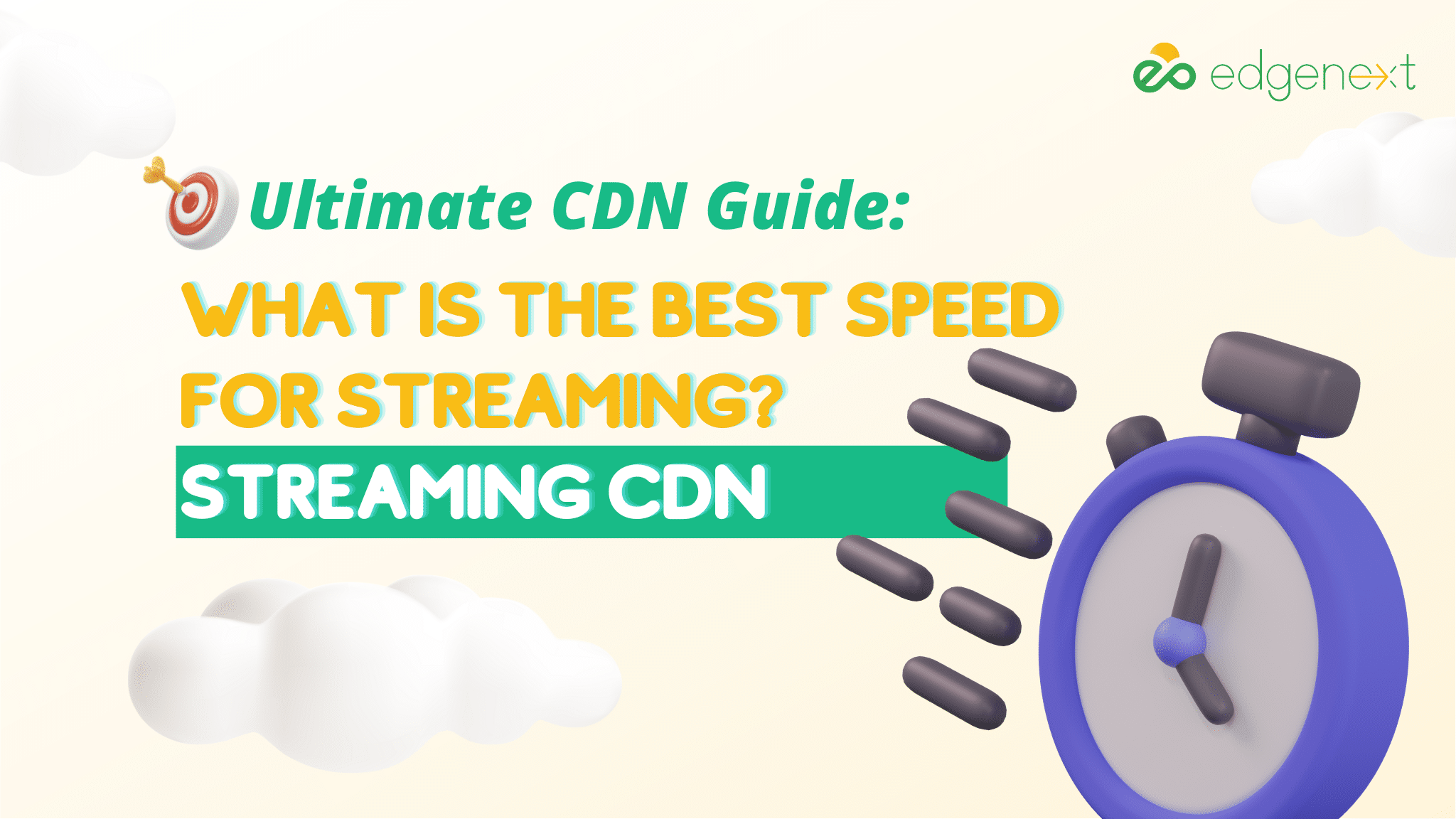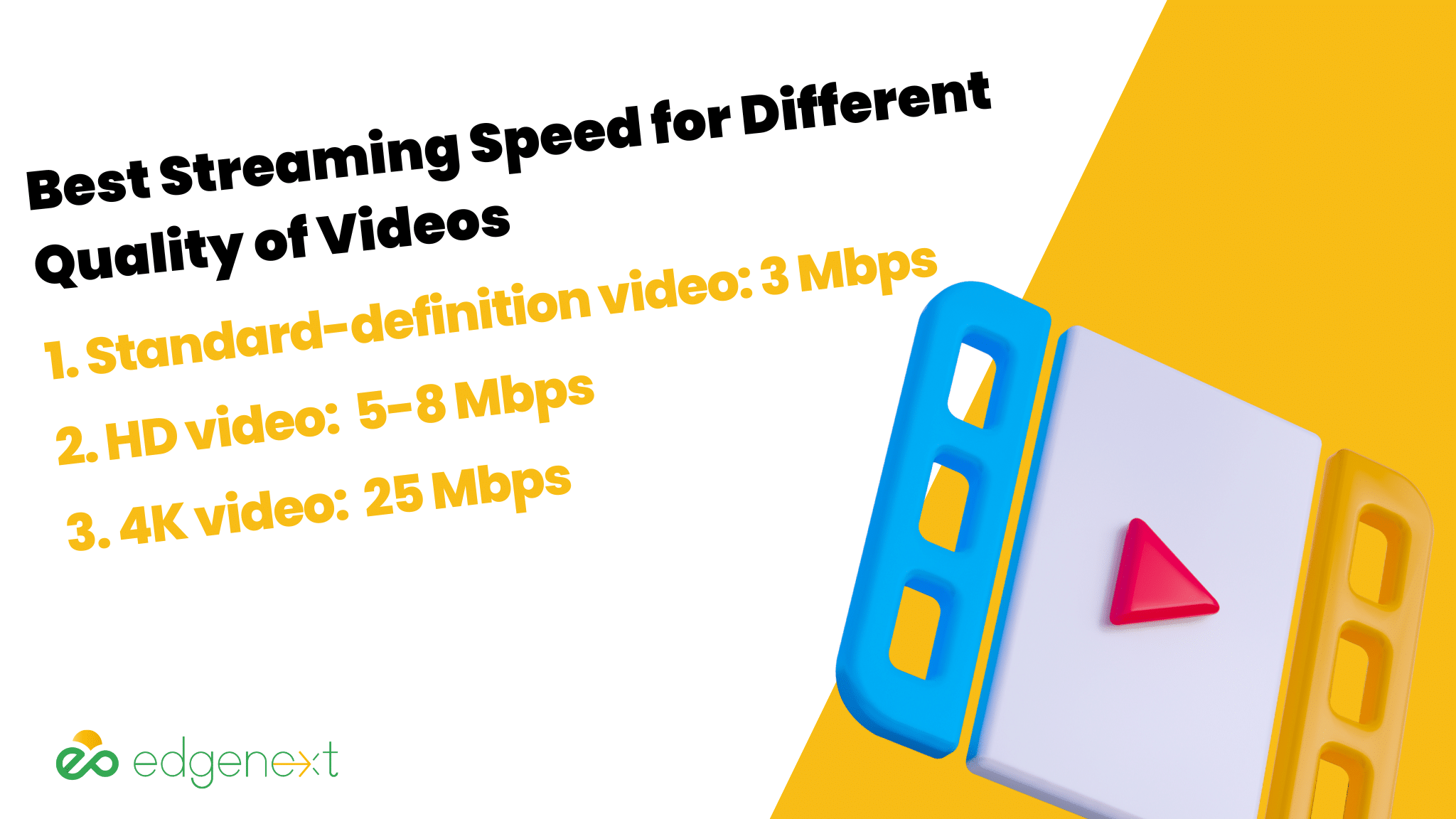
This question often comes up when discussing streaming content delivery networks (CDNs). The answer, unfortunately, is not a simple one. The best speed for streaming depends on several factors, including the type of content being streamed, the number of users streaming the content, and the overall data throughput of the CDN.
That said, there are a few general tips that can help you ensure that your streaming content is delivered at best possible speed:
Anyone who has streamed video content online knows that not all streaming speeds are equal. For example, a service like Netflix offers different streaming speeds for different devices. So, if you’re streaming on a laptop or desktop computer, you’ll need a higher rate than streaming on a mobile device. The same is true for other streaming services, like Hulu and Amazon Prime. Different streaming speeds are also necessary for different types of video content. For instance, high-definition video requires a higher speed than standard-definition video. And, if you’re streaming live video, you’ll need an even higher speed. So, when it comes to streaming, it’s essential to be aware of the different types of speeds and how they can affect your video viewing experience.

When it comes to streaming video, there is no one-size-fits-all solution. The best speed for streaming depends on the type of content you’re trying to watch. For example, standard definition video can be streamed at a speed as low as 3Mbps, while HD video requires a minimum of 5Mbps. If you’re trying to watch a 4K video, you’ll need a connection with 25Mbps or more. The higher the video quality, the higher the bandwidth requirements will be. That’s why choosing a broadband plan that can accommodate your streaming needs is essential. Otherwise, you may end up with a lot of buffering and frustration.
When streaming video, your experience’s quality mainly depends on your internet speed. For standard-definition video, you can get away with a slower speed, like 3 Mbps. However, if you want to stream high-definition video, you’ll need a much faster connection.
If you’re trying to stream HD video, you’ll need a minimum download speed of 5 Mbps. Otherwise, you may end up with a pixelated or buffering video. The best internet speeds for HD video are around 5-8 Mbps. You’ll need a faster connection if you’re trying to stream 4K video.
The best internet speeds for 4K video are around 25 Mbps. So if you’re looking to get the most out of your 4K purchase, ensure you have a high-speed internet connection that can handle the large file sizes. Otherwise, you’ll be stuck with subpar video quality.
A streaming CDN is a content delivery network specifically designed for streaming media. Unlike traditional CDNs, which simply deliver files from a server to a user, a streaming CDN can buffer and cache live streams, providing a smoother streaming experience for viewers. In addition, streaming CDNs often come with built-in security features, such as encryption and watermarking, which helps to protect your content from piracy. While a streaming CDN can be more expensive than a traditional CDN, it is an essential tool for anyone who wants to deliver high-quality streaming content.
Whether you’re trying to stream HD, 4K, or anything in between, it’s essential to know what speeds you need for the best possible experience. With a streaming CDN like EdgeNext’s, you can get high-quality content delivery without overspending. Contact us today to learn more about how we can help you get the most out of your streaming content.
© 2025 EdgeNext Copyright All Right Reserved